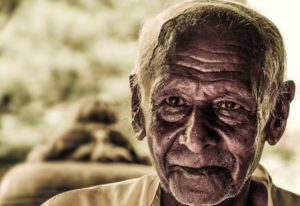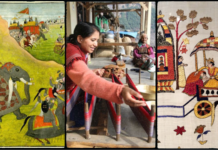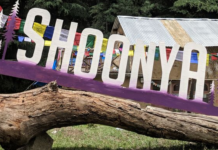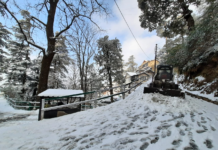
Picture Source: www.pixino.com
It’s not the goodbyes that hurt, it’s the flashbacks that follow.
Nobody could understand this quote better than Mr. Shyam Prasad Baluni who is a retired army serviceman and the last of the people to leave his native village.
This village Baluni was what Mr. Shyam Prasad called home. He spent his entire childhood in this village until they recruited him into the Indian Army. His kids grew up here. His wife had died 23 years ago, and he had 5 daughters and a son. Later, four of his daughters got married and his son became a sepoy in the Indian Army being posted in Punjab.
Returning to his village in 1985 to live a peaceful life of retirement, he wished to enjoy time with his old friends and relish all those long-lost memories but little did he knew that his old friends would have already moved out of the village with their families in search of a better life.
Still, there were a few inhabitants in the village which kept him tied to the place. He would wake up daily at 5 am, milk his cows and feed them, eat his lunch and walked 2km to the Banekh village in which he had rented a general store. He said he used to always find a company on his way back home until the late 1990s.
That’s when things started to turn out harder. More and more people started to vacate the village until he and his daughter were the only people left in the village.
When his last daughter got married and moved out. He realized that the conditions of the village had been unbearable. There was no regular water connection in the village and he had to walk up to one kilometer to fetch water. There wasn’t even a proper road to the village and writing letters to the authorities did not help.
With the homes being emptied faster, the wild animals strayed on closer especially the leopards and the only weapon he had was a lathi to protect himself.
He still bore all the hardships even at the age of over 70 years, because he didn’t want to leave the place where he belonged. But, until a year ago when he developed a heart problem they took him to Delhi by his kids for treatment. When he returned a month later, they delighted him to finally have a road to his village for which he waited his entire life. Even though it was an unpaved road, he didn’t complain.
But with absolutely no health care facilities near the village, he realized that to be alive, he too will have to move out. If he died here, not a crow would know.
Still, he could not gather the courage to pack all his belongings as that would mean leaving his village forever, so he took only his bedding and 4 of his shirts and trousers with him, leaving back most of his belongings as hope to come back one day.
With a grieving heart, he waited for the train to kotdwar and as the train approached, his stomach tightened. Finally, he too moved out leaving the population of the village to zero which once used to bloom with people.
This is just one sad instance but there are millions of people who are compelled to leave their native villages in Uttarakhand due to lack of education, employment, infrastructure or health facilities.
People are made to sacrifice the memories of their childhood to gain a better future which they no longer see in their old and deprived villages, forcing them to move to bigger cities often making these villages ‘ghost villages’ which refers to the villages which have been totally abandoned.
According to the facts disclosed by migration commission, 138 people migrated from the state of Uttarakhand in the last 10 years of which an average of 33 left to never return.
The report stated that 734 new ghost villages have been formed which now makes the total number of uninhabited villages 1768 in the state.
This not only makes it an unfavorable condition in the north but also makes it worse in those cities where the alarming increase in population for migration is making it even harder to survive.
Rampant corruption, dirty politics, prejudiced distribution of budgets to better performing states, these are some factors leading to the current scenario of the ghost villages but only playing the blame game won’t help.
The government needs to give due importance to the states which have been neglected for so long. It needs to actually delve into the grass-root level and work on the primary causes of migration which involves providing better infrastructure and basic amenities.
NGOs should also undertake academic, health care and various drives in these neglected villages are on the verge of disappearance and even we should take the responsibility of making the world aware of the emotional and physical hardships that people here are going through and should join in to make this world a better place to live in.





















